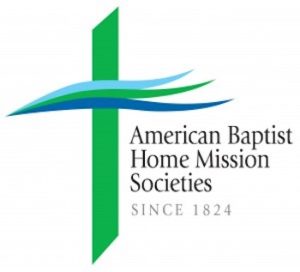
*On this date, 1824, The American Baptist Home Mission Society was founded. This Christian missionary society was established during the Antebellum South era of America.
Its main predecessor, the Home Mission Society, was established in New York City in 1832 to operate on the American frontier. Its mission was "to preach the Gospel, establish churches, and give support and ministry to the unchurched and destitute." In the 19th century, the Society was related to the Triennial Convention of Baptists. In the 21st century, it is part of that Convention's successor, the American Baptist Churches, USA.
During the "Georgia Test Case" of 1844, the Georgia State Convention proposed the slaveholder, Elder James E. Reeve, be appointed as a missionary. The Foreign Mission Board refused to approve his appointment, recognizing the case as a challenge and not wanting to overturn their policy of neutrality in the slavery issue. They stated that slavery should not be introduced as a factor in deliberations about missionary appointments. This decision prompted the Alabama Baptist State Convention to challenge the Home Mission Board with what was called the "Alabama Resolutions," drafted by Rev. Basil Manly, Sr. They threatened to withdraw financial support from the national organization if their candidates were not considered for positions as missionaries, regardless of whether they were slaveholders.
In its response, the Board noted they needed independence in approving missionary appointments. They further stated that in 30 years, no slaveholder had applied to be a missionary. They said missionaries traveled without servants so no slaveholder could take slaves with him. They said they would "never be a party to any arrangement which would imply approbation of slavery." Dissatisfied with the decision, added to other sectional tensions, Baptists of nine Southern states split from the General (Triennial) Convention and, in 1845, formed the Southern Baptist Convention.
Immediately following the American Civil War, the Society worked with freedmen to establish 27 Historically Black Colleges. Former slaves were eager for education after being blocked from it for so long. The Home Mission Society sent missionaries to America's frontier, including some work with Native Americans and Negroes. Still, it was not until after 1865 that the trust for Indian work in the United States, which had almost been extinguished during the Civil War, was transferred by the Missionary Union (later the ABFMS and International Ministries) to the Home Mission Society. By 1877, 13 home missionaries were working among the Creek, Seminole, Delaware, Shawano, Kickapoo, Sac, and Fox in Indian Territory (modern Oklahoma).
Ministry with Black men, women, and children began during the American Civil War. Joanna P. Moore learned of the needs of the freed women and children on Island No. 10, north of Memphis on the Mississippi River. In November 1863, she found herself on Island No. 10 among "1,100 colored women and children in distress" and a Union Army encampment. She had $4 from her Baptist Sabbath School in Belvidere, Ill., a promise of another $4 each month, and a commission from The American Baptist Home Mission Society (without salary); she was the first missionary appointment made to the South. She began a ministry that would span 40 years and earn her the "Swamp Angel of the South." In 1864, she ministered to a group at Helena, Ark. 1868, she went to Lauderdale, Miss., to help Friends in an orphan asylum.
While she was temporarily in charge of the institution, cholera broke out, and 11 children died within one week, but she remained at her post until the fury of the plague was abated. She spent nine years near New Orleans, reading the Bible to those who could not read, writing letters in search of lost ones, and especially caring for the helpless older women she met. She began the Fireside Schools in 1884 with "a prepared Bible lesson for all the family to read together daily; supplying the home with other appropriate books for parent and child to read together." She prepared a leaflet with Bible lessons each month called HOPE.
In 1866, it founded Nashville Normal and Theological Institute, the predecessor of Roger Williams University, for freedmen. In 1907, the Societies related to the Triennial Convention were organized under the umbrella of the Northern Baptist Convention. The Home Mission Society merged with the Woman's Baptist Home Mission Society in 1955. From 1972 to 2010, the Mission Society operated under the National Ministries of the American Baptist Churches USA. In 2003, the Society merged with the American Baptist Education Society (founded in 1888). Since 2010, it has operated under the American Baptist Home Mission Societies of the American Baptist Churches USA.